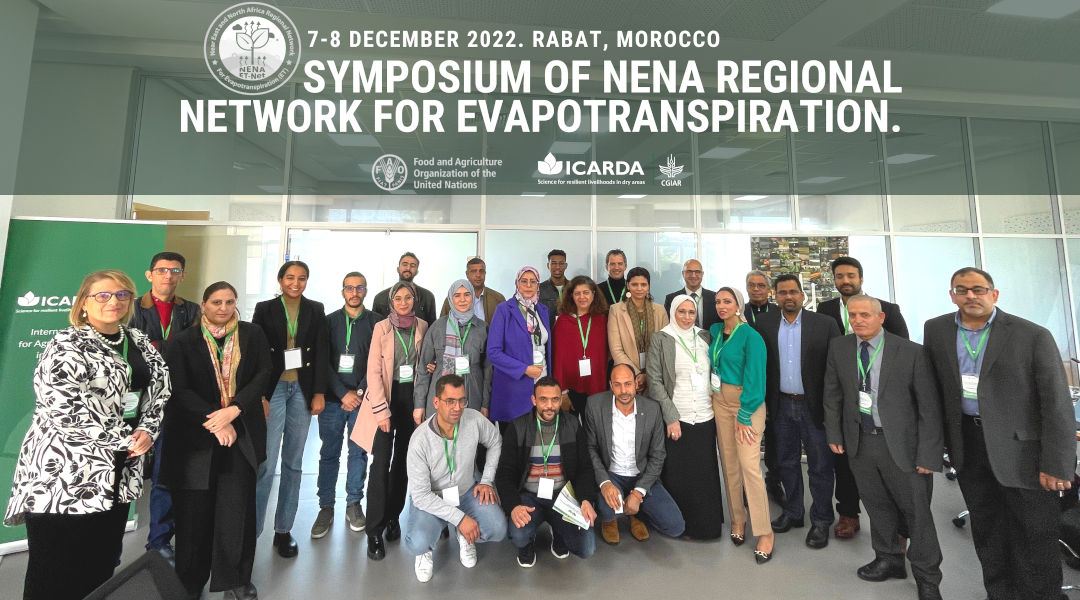
ICARDA Jordan Country Office established in 1977
Country manager: Hassan Machlab
Overview
ICARDA’s work in Jordan is made possible through the support of NARC-Jordan, Arab Fund for Economic and Social Development (AFESD), The German Federal Ministry for the Environment (BMU), OPEC Fund for International Development (OFID), Food and Agriculture Organization (FAO), Swedish International Development Cooperation Agency (SIDA), International Water Management Institute (IWMI), and CGIAR Research Program on Water, Land and Ecosystems (WLE)., Utrecht University in the Netherlands, and IHE DELFT and in collaboration with the University of Jordan, Tottori University in Japan, IUCN West Asia office, CGIAR Research Program on Livestock International Livestock Research Institute (ILRI), US Forest Service(USFS), United States Department of Agriculture (USDA), and WADI NGO.
Agriculture plays important social, economic and environmental roles in Jordan, contributing to national food security and employing over 120,000 workers, including a significant proportion of the country's retirees. The work opportunity presented by the sector limits, and sometimes even reverses, migration to the cities.
Jordan has a land area of around 8.94 million ha, with three distinct agro-climatic zones: The Rift valley (5.6%), the highlands (6.4%) and marginal and desert areas (88%).
In 90% of the country, the average rainfall is below 200 mm per year, making it one of the world's most water-deficient countries. Currently, 60% of available water is used for agriculture. This percentage will inevitably decline in the near future; while simultaneously, ground and fossil waters are being rapidly depleted. Nevertheless, Jordan is rich in biodiversity – with over 2,700 plant species – and lies within the center of diversity for many globally important crops, including barley, lentil, some feed legumes and many fruit trees.
ICARDA has implemented more than 30 bilateral, multilateral and regional projects in Jordan in collaboration with NARC and other partners. This has led to major impacts in several areas such as the conservation of dryland ecosystems, genetic resources, germplasm improvement, natural resource management, small ruminants’ improvement, dairy value chains, and socioeconomics and policy.
Activities
-
Collection, evaluation, conservation, and documentation of indigenous germplasm.
-
Annual provision to Jordanian institutions with nurseries of improved germplasm: segregating populations, advanced lines and yield trials of barley, durum wheat, bread wheat, lentil, chickpea, vetch, grass pea and medics.
-
Development and demonstration of technology packages for cereal and legume varieties, rangeland improvement, water management, dairy value chains, and socioeconomic surveys.
-
Sustainable land, water and soil management through the development of conservation agriculture approaches.
-
Development of community models to evaluate the effects of different policy reforms and technologies on farmers' welfare and resource allocation.
-
Research to identify appropriate property rights and rangeland management institutions that promote the efficient, equitable and environmentally sustainable use of land under different agro-climatic and socioeconomic conditions found in low-rainfall areas, and to identify conditions under which more formalized institutions are appropriate.
-
Promoting cactus pear as a multi-purpose drought resilient species, a cactus germplasm collection was established at Mushaggar Station in Jordan using more than 68 spineless cactus accessions. The cactus collection is being maintained and superior genotypes were selected and multiplied for distribution to hundreds of farmers in Jordan.
IMPACT
-
More than 40 ICARDA crop varieties registered in Jordan and 4,500 accessions were collected and conserved in the ICARDA genebanks.
-
ICARDA’s mechanized micro water harvesting approach targeting the annual rehabilitation of 1,600 ha of degraded Badia was adopted by the Jordanian Government.
-
The ICARDA approach for Jameed production increased net income for small-scale producers by 20%, reduced working hours, and made the process less physically demanding, which has benefitted the women working in this field.
-
Farmers in Irbid using ICARDA’s conservation agriculture package produced 16% more crop yields than those generated under conventional practices.
-
High adoption rates of ICARDA packages – 58% for improved barley varieties, 29% for vetch cultivation, 29% for early lamb weaning, and 21% for feed blocks – which has led to significant increases in income.
-
Adopters of ICARDA’s feed block technology earned 16% higher net returns than non-adopters.
-
Farmers who adopted ICARDA’s early weaning technology increased their revenues by 6.96 Jordanian dinar (JD)/9.8166 US dollars per lamb. Those who adopted feed blocks increased their revenues by 3.56 JD per animal and their net returns by 5.35 JD per animal (16% higher than among non-adopters).






